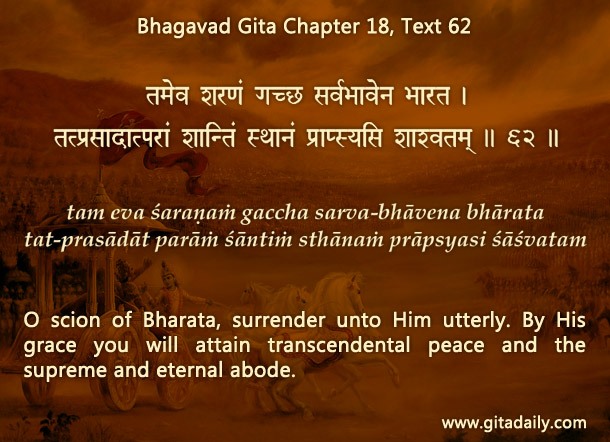Consciousness is the fundamental energy of the soul. The Sanskrit word for it is chetana. If we compare the soul to a flashlight, consciousness is the beam of light. Consciousness arising from the soul enters the mind, spreads across the body, and then expands outward, enabling us to be aware of our surroundings, analyze those inputs, and act appropriately. Consciousness is the energy that utilizes the mind and body as instruments for awareness, analysis and action.
Without consciousness, we can’t function — as happens when we are unconscious or in a coma. During such times, the beam of light is obscured — that is, the consciousness coming from the soul no longer surfaces to the level of the physical body, which is why we observe no signs of consciousness in the person.
Within our consciousness is the specific faculty for moral awareness, which is called conscience, known in Sanskrit as viveka-buddhi. Conscience is the source of our sense of right and wrong. While all living beings are driven in their choices by their biological instincts, our choices as human beings are guided by one additional factor: conscious moral awareness or conscience.
Both consciousness and conscience can become conditioned and contaminated. Just as a polluted consciousness can distort our awareness, a polluted conscience can distort our moral compass. While everyone possesses some sense of right and wrong, not everyone’s sense of right and wrong always aligns with what is objectively right and wrong. For instance, suppose someone grew up in a family where meat-eating is the norm. If they choose to become vegan, They may feel guilty that they are betraying their family or tradition. Though they are doing something good — ceasing violence against animals perpetrated to satisfy their palate — why do they feel bad about doing something good? Because of their culturally conditioned conscience, which is misled and misleading.
Therefore, while our conscience is important as a guide for discerning right and wrong, it is equally important to recognize that conscience is not the ultimate authority. We need to align our conscience with wisdom derived from time-tested sources like scripture. When conscience becomes thus purified, it becomes a channel for the voice of the divinity within us, the Supersoul. A divinely aligned conscience is a potent guide to take us toward our highest good, as indicated in the Bhagavad-gita (18.62).
Summary:
Consciousness is the foundational faculty for all awareness; conscience is the specific faculty for moral awareness.
Think it over:
- What is consciousness?
- What is conscience?
- Why may conscience be unreliable? How can it be made more reliable?
Audio explanation of article is here: https://gitadaily.substack.com/p/the-difference-between-consciousness
***
18.62: O scion of Bharata, surrender unto Him utterly. By His grace you will attain transcendental peace and the supreme and eternal abode.
To know more about this verse, please click on the image


Moral awareness is best awareness